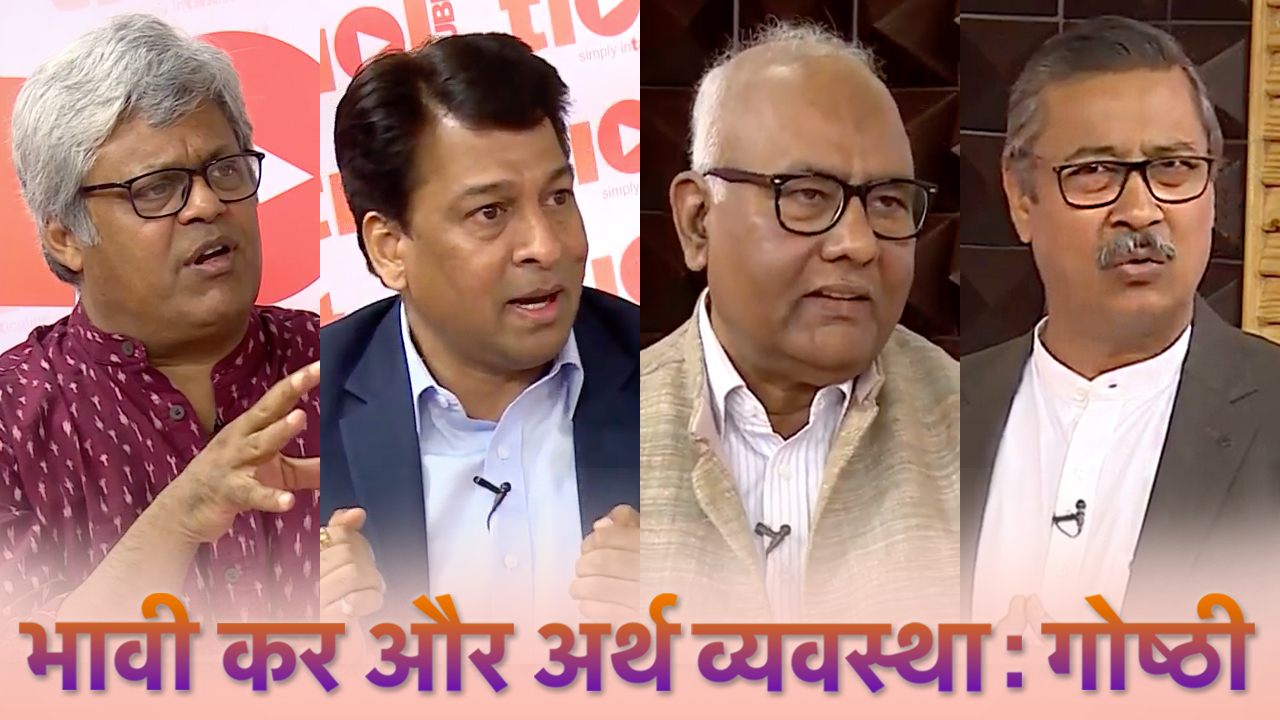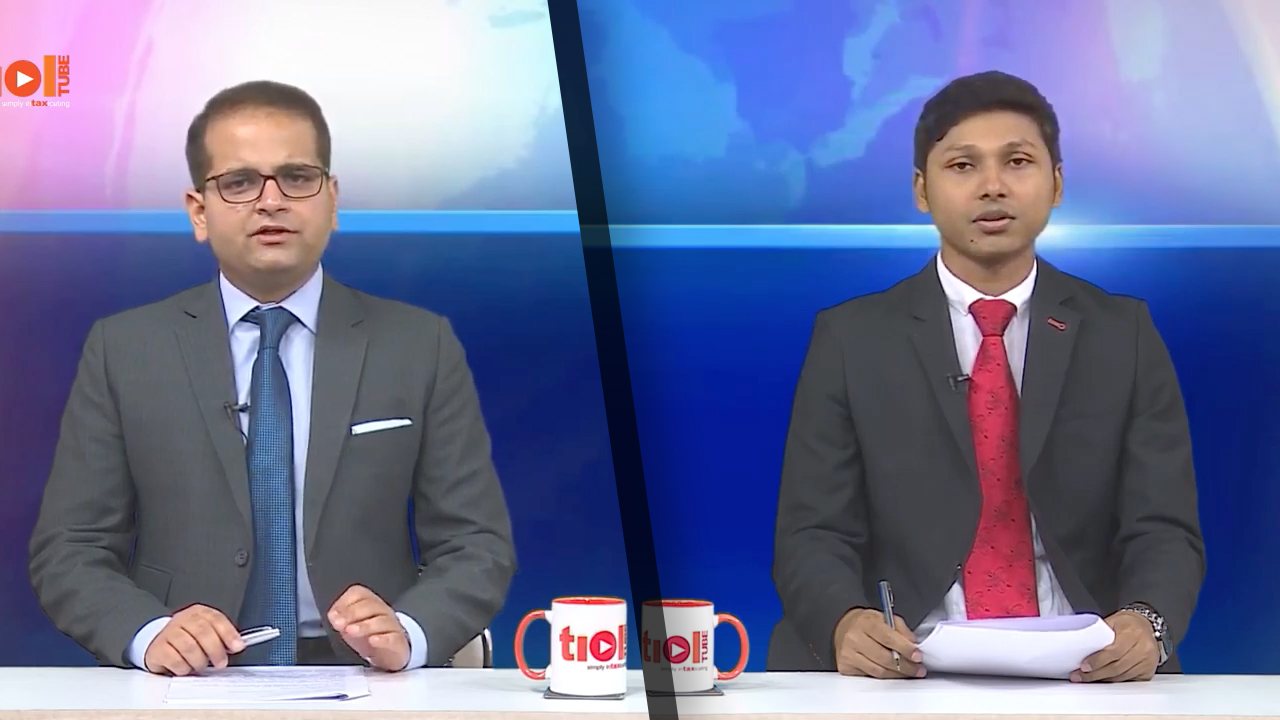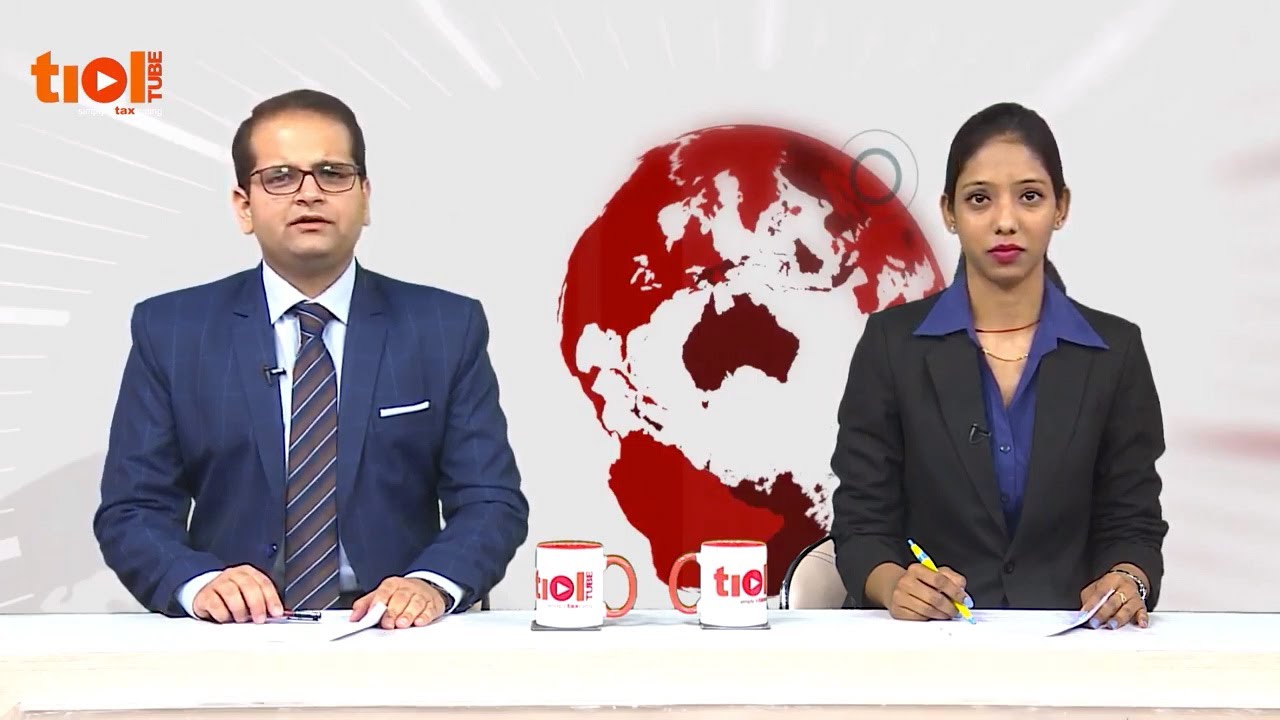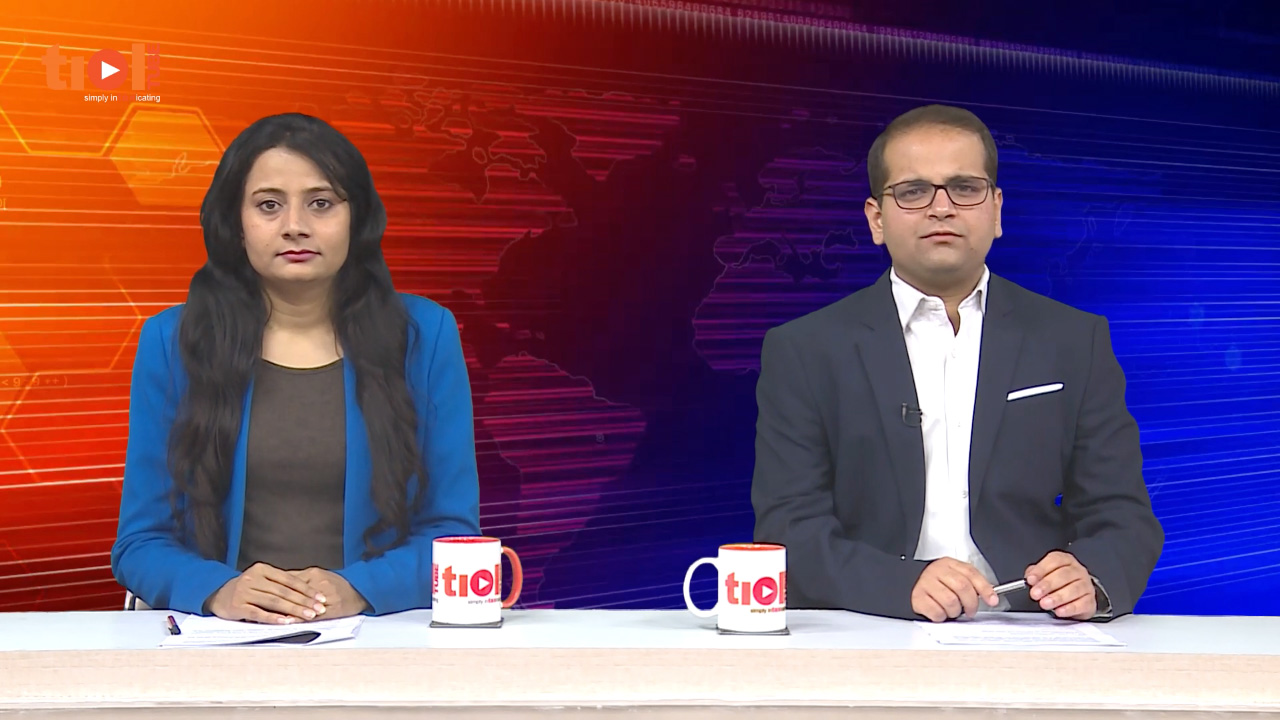|
SERVICE TAX
2019-TIOL-1152-CESTAT-DEL
Executive Engineer Vs CCE & ST
ST - The assessee is a holder of service tax registration under category of "Telecommunication Service" - The department alleged short payment of tax on part of assessee and the non-payment of service tax on gross amount charged for period of year 2009-2010 to 2013-14 - The main issue to be adjudicated is as to whether the assessee has to pay service tax on services provided to M/s. CMST-BSNL, Jaipur which is having a separate service tax registration - Both the assessee and CMTS-BSNL are units/office of one and the same company i.e. BSNL - The book entry through debit advice note has been made by the appellant for transfer of expenses to another unit of BSNL i.e. CMTS and it will not make the gross transaction accounted for between units of organization - The assessee has placed reliance on a decision of Rajasthan High Court in case of BSNL 2016-TIOL-2597-HC-RAJ-CX - Said decision is related to availment of cenvat credit transferred by Head office to assessee on Advise of Transfer - The credit has been found admissible on the ground that assessee and the Head office fell in the same circle of BSNL - Assessee and CMTS-BSNL both fall in the same circle of BSNL, hence the transaction between the two cannot be termed as provision of service and hence no service tax is payable thereon - Adjudicating authority below has wrongly relied upon the concept of book adjustment which is relevant only when the event is taxable - Once no taxability is involved question of evasion of tax does not arise - The question for assessee to suppress or mis-represent the fact with the intent to evade tax also retains no relevant - SCN is thereof held to be time barred: CESTAT
- Appeal allowed: DELHI CESTAT
CENTRAL EXCISE
2019-TIOL-906-HC-MUM-CX
CEAT Ltd Vs CCE
CX - The assessee is engaged in manufacture of tyres for the purpose of which, the assessee procures various inputs and capital goods - They had availed CENVAT Credit on angles, beams and channels during period April 2015 to September, 2015 under CCR, 2004 - Demand confirmed in respect of CENVAT Credit taken on said products as not being as capital goods or even inputs under the Credit Rules, 2004 - The said products, according to Revenue are used for making of structures to support capital goods - Therefore, excluded from the definition and meaning of inputs under Credit Rules, 2004 - It is the case of assessee as urged both before the Tribunal and here, that the said products are not used for making structures to support capital goods but are used for the purpose of repairs and maintenance of machinery - Thus, satisfying the definition of inputs as not hit by the exclusion clause found in Rule 2(k) of Credit Rules, 2004 - The impugned order of Tribunal after making a specific reference to Rule 2(k) of Credit Rules 2004 which defines inputs and also the assessee's case that the said products are used for repairs does not deal with assessee's contention of said products being inputs while dismissing the assessee's appeal - Thus, the impugned order of Tribunal has not at all considered the aforesaid submission made by assessee - This, even though the impugned order does record the fact that it is the case of assessee that the said products are used in repair and maintenance of machinery - Thus, the order suffers from breach of principle of natural justice being an order which is not supported by reasons - Therefore, impugned order cannot be sustained and would require fresh consideration at the hands of Tribunal - This question is answered in negative i.e. in favour of assessee and against the Revenue: HC
- Appeal disposed of : BOMBAY HIGH COURT 2019-TIOL-1151-CESTAT-DEL
CE GST Vs SB Industries
CX - The assessee is engaged in manufacture of power bank/ portable mobile charger out of imported components - For this purpose they have registered themselves with Central Excise Department for availing facility of import of goods at concessional rate of duty under Notfn 12/2012/ Cus, as amended - The Customs has classified the 'power bank' under Heading No 8504 40 30 - This Customs classification for the product is also based on HSN commodity description as in case of Central Excise Tariff - Therefore, the uniformity in classification has to be maintained by Revenue - It cannot be a case of Revenue that for the Customs classification under Customs Tariff Act, 1975, and Central Excise Tariff, 1986, there can be two classifications for the same product on the ground that both the Customs and Excise Tariff are aligned to the HSN Classification of the goods - It has been held by Supreme Court in case of Wood Craft Products Ltd. 2002-TIOL-278-SC-CX-LB & LML Ltd. 2010-TIOL-75-SC-CUS - The HSN classification serves as useful guide in the classification of the product under Customs/ Excise Tariff - Tribunal don't find as to why and under what circumstances Ministry has clarified that the 'power bank' would be classified as 'accumulator' classifiable under Chapter 8507 - The Commissioner (A) in his order given detailed elaborate order as to how and why he has deferred with the clarification issued by Ministry - No infirmity found in the order of Commissioner in view of his reasonable findings - Although the Ministry has issued the clarification to the respondent regarding the classification of 'power bank' as the 'accumulator' but the same cannot be treated as a circular issued by the Board was as to make it mandatory on the part of Adjudicating Authority to follow the same - In that case, Tribunal agrees with the decision of Punjab Recorders 2002-TIOL-39-CESTAT-DEL-SB and Orient Paper Mills wherein it is held that clarification issued by the CBEC is not applicable to the Adjudicating Authority - Therefore, the Commissioner (A) has considered the same and rightly deferred with the classification as decided by Ministry on the basis of his well reasoned arguments - No infirmity found in the finding of Commissioner (A) on this Circular as well - Once it is held that power bank is also a kind of mobile charger, automatically the benefit of the Notification will be available to the assessee - It is on record that in this case the goods imported are part and input of power bank - The assessee is entitled for benefit of Notfn and has held by Commissioner (A): CESTAT
- Appeal dismissed: DELHI CESTAT
CUSTOMS
NOTIFICATION
dgft19not003
Amendment in Appendix 3 (SCOMET items) to Schedule-2 of ITC (HS) Classification of Export and Import Items, 2018 dgft19not002
Amendment in Appendix 3 (SCOMET items) to Schedule-2 of ITC (HS) Classification of Export and Import Items, 2018 CASE LAWS
2019-TIOL-905-HC-MUM-CUS
Ravindrakumar R Garg Vs CC
Cus - Appeal filed under Section 130 of Customs Act, 1962 challenging the order dated 19th December, 2016 passed by Tribunal wherein the appeal of assessee was dismissed - This for failure to comply with the Tribunal's order dated 17th October, 2016, directing the assessee to deposit 20% of penalty amount confirmed by adjudicating authority for the purpose of entertaining the appeal on merits - The assessee did not appear before the Tribunal on 17th October, 2016 nor on 19th December, 2016 - Nevertheless, the Tribunal had on 19th December, 2016 itself noted the fact as recorded in impugned order that an application for rectification of order dated 17th October, 2016 was pending for consideration - On the said fact, the Tribunal ought not to have disposed of the appeal finally for non-compliance with earlier order dated 17th October, 2016 without first considering the assessee' rectification application - Therefore, the fair and just thing for the Tribunal to do was to list the Rectification Application on board and dispose of the same before taking up the appeal for final disposal - This the Tribunal did not do - This only leads to injustice and multiplicity of proceedings - Therefore, the substantial question of law is answered in the negative i.e. in favour of assessee and against the Revenue: HC
- Appeal disposed of: BOMBAY HIGH COURT
2019-TIOL-1166-CESTAT-MUM
Ingram Micro India Pvt Ltd Vs CC
Cus - Appellants had filed Bill of Entry for clearance of goods viz. Video Conferencing System and claimed classification under CTH 8517 6990 and benefit of exemption 24/2005-Cus, Sr. no. 13 - Revenue did not agree with classification and proposed to classify the same under CTH 8517 6290 and deny the exemption claimed - Deputy Commissioner approved the classification as proposed by Revenue and which order was upheld by Commissioner(A) - importer in appeal before CESTAT.
Held: Considering the highly technical nature of the dispute, Bench had vide its interim order dated 02.04.2018 directed Revenue to obtain report from the technical experts of Department of Electronics and/or the Department of Telecommunications, GOI and the appellant was also directed to obtain such report/certificate from a recognized independent authority - whereas in the reports obtained by Revenue it is opined that the impugned goods is a VOIP Equipment, the report obtained by the importer from the manufacturer and from the Executive Producer, Virtual Classrooms and Video Productions, IIT, Madras mentions that the Video Conference System is simply a video and audio streaming system and certainly not an audio system like VoIP equipment - Bench observes that it is inclined to go with the opinion given by the Department of Telecommunications, GOI and discard the opinion produced by the importer for the reason that the one given by the manufacturer only gives a description of the product and the other has been provided by an Executive Producer who cannot be said to be someone who is a technical authority on the subject - Goods imported by the appellant are nothing but ‘VOIP Equipment' in view of the expert opinion given by the Department of Telecommunication - Insofar as exemption notification 25/2004-Cus is concerned, the contention of the appellant that by using the word ‘namely', the notification has given exhaustive list of equipment to be excluded and since what has been excluded is VOIP phones, then all other VOIP equipment should be covered by the said notification in view of the apex court decision in SreeDurga Distributors [2007-TIOL-74-SC-CT] is not tenable as the principles of interpretation laid down by the apex court in that case is in relation to the entry in the schedule to the Act and cannot be made applicable to interpretation of entry in an exemption notification - If the argument of the appellants is accepted then quite a few words used in the notification will become redundant - it is a settled law that any interpretation which renders the words and phrases used in an exemption notification redundant should be avoided; that an exemption notification should be considered as a whole so as to give meaning to every word and phrase used in the notification - Bench is adjudicating the matter in respect of a particular bill of entry and the goods sought to be imported against the said bill of entry - Bench is not bound by the orders/view taken by the authorities below in respect of subsequent bill of entry/entries (where benefit has been allowed) - It is for the revenue authorities to investigate that when Commissioner(A) had disallowed the exemption and the matter was subjudice, why the assessing authorities have allowed the benefit of exemption in case of similarly placed imported goods - Chief Commissioner(s) of the ports concerned may cause an investigation if they deem fit - an incorrect/erroneous order of an authority cannot be a binding precedent as held by the apex court in the case of Chandigarh Administration vs. Jagjit Singh [1995SCC(1)745)] - equipment under import are used for reception, conversion and transmission or regeneration of voice and video (images) and hence get classified under double hash heading 851762 and at triple dash under heading 85176290 - Held that classification made by the department under 8517 6290 is justifiable - appeal is dismissed: CESTAT [para5.2, 5.5, 5.8, 5.10, 5.11, 5.15, 6.2, 7.1]
- Appeal dismissed: MUMBAI CESTAT
2019-TIOL-1165-CESTAT-MUM
Bosch Chassis Systems India Pvt Ltd Vs CC
Cus - Valuation - Issue is whether the royalty paid by the appellant to the overseas licensors/foreign suppliers is includible in the value of imported goods for assessment as per rule 10(1)(c) of the Customs Valuation Rules, 2009 - Importer in appeal.
Held: Per Member (J) - In the present case, the royalty is paid only on the value addition achieved after deducting the cost of imported components, be it imported from related or un-related persons - Payment of royalty has nothing to do with the supply or components or on the price of the components and since the foreign company had no controlling interest in the Indian buyer, the royalty paid cannot form part of the price for the supply of components - law laid down by the Supreme Court in the case of Ferodo India Pvt. Ltd. - 2008-TIOL-28-SC-CUS is applicable - Rule 10(1)(c) of the Customs Valuation Rules is, therefore, not applicable to the facts of the case and hence finding of the Commissioner(A) is patently incorrect and not sustainable - Held that invoice value is not required to be loaded by including the royalty - impugned order set aside and appeal allowed with consequential relief: CESTAT [para 14, 15]
Per - Member (T) -Appellants have not been able to demonstrate that there is no connection between the imported goods and the royalties being paid - A combined reading of the paragraphs 2.2, 2.3 and 5.1 of the agreement definitely points towards the connection between the imported goods procured by the appellants from the licensor and royalty being paid by the licensee for making use of the technical knowhow to manufacture the finished goods using the said goods - in case the same goods are manufactured by the appellant themselves or through their supplier then in that case, as per the agreement, royalty charges are calculated without deducting the value of such self manufactured components - thus the connection between the royalty paid and the imported components is quite evident - in terms of rule 10(1)(c), those royalty charges which are connected with the imported goods and is a condition for sale of the said goods need to be added for determining the assessable value - Apex Court decision in Matsushita Television - 2007-TIOL-64-SC-CUS and Tribunal decision in Husco Hydraulics Pvt. Ltd. - 2016-TIOL-2658-CESTAT-MUM relied upon -Held that there is a nexus between the payment of royalty and imported goods - there is no merit in the appeal and hence dismissed: CESTAT [para 4.6, 5.6, 5.7, 7]
Difference of Opinion, therefore, matter referred to the President to refer the matter to the Third Member.
- Reference to Third Member: MUMBAI CESTAT
2019-TIOL-1164-CESTAT-MUM
CC Vs Sun Tex
Cus - Goods were originally consigned to India from China for importer M/s Filatex (India) Ltd. in the month of August 2008 - the unit price was agreed as @USD 1400/MT - However, the importer did not clear the goods and also refused to honour the bank L.C, therefore, the exporter of the goods contacted the respondent for resale of their goods since it was incurring heavy detention and demurrage charges and also because the goods were getting deteriorated and the exporter was not getting any other buyer - said exporter entered into an agreement with the respondent in December 2008 who agreed to buy the goods @USD 600/MT subject to the condition that all the detention and demurrage charges would be paid by the respondents and which alone came to USD 505/MT - respondents filed bill of entry in January 2009 declaring the assessable value of the goods as Rs.2,92,09,200/- - alleging that the valuation has not been correctly arrived at, proceedings were initiated and the declared transaction value @ USD 600/MT was rejected and the goods were assessed at USD 1400/MT - Commissioner(A) set aside this order and, therefore, Revenue is in appeal before CESTAT.
Held: Per Member(J) - Though the imported goods were intended for delivery at the time and place of importation, the delivery was not taken by the first importer and requirement of delivery at the time and place of import is also not met - in fact, delivery was taken by the respondent after almost 6 months, therefore, in the facts of the case, it is logical to say that the requirement of ‘delivery at the time and place of importation' is met only when the respondents had taken delivery of the goods in question - Supreme Court in the case of Garden Silk Mills Ltd. - 2002-TIOL-19-SC-CUS-LB has laid down that taxable event is reached when the goods reach the Customs barrier and the bill of entry for home consumption is filed - as per section 14 of the Customs Act, 1962, value of imported goods shall be the transaction value i.e. the price actually paid or payable for the goods for delivery at the time and place of importation - no other price can be taken into consideration for determining the assessable value in terms of the main definition of the term ‘value' given in s.14(1) of the Act - supplier of goods and importer respondent are not related persons and there is no evidence on record that any amount in excess of what has been declared by the respondents has been repatriated by the respondents, therefore, the explanation given by the respondent for quoting the price in question is well reasoned - Held that there is no ground for rejecting the transaction value - impugned order is upheld and Revenue appeal is rejected: CESTAT [para 9, 11, 14]
Per Member(T) - As per section 46 of the Act, the bill of entry for goods imported has to be filed at the time of importation which in the present case was when the goods for the first time entered into the Indian Customs waters - In terms of s.14 of the Act, the price needs to be determined in course of international trade on the time and date of importation which in the present case is clearly when the goods were first imported - any subsequent event prior to clearance of the said goods from the port cannot alter the price in course of international trade for the purpose of determination of value u/s 14 -levy of detention and demurrage charges cannot be the reason for reduction in the international sale price of the goods - Held that order ofCommissioner(A) allowing reduction in transaction value on this account is not justified - Revenue appeal needs to be allowed: CESTAT [para 16, 16.2, 17]
Difference of Opinion, therefore, matter referred to the President to refer the matter to the Third Member.
- Reference to Third Member: MUMBAI CESTAT 2019-TIOL-1150-CESTAT-KOL
Balaji Enterprises Vs CC
Cus - The assessee filed a Bill of Entry and declared certain electronics goods - It was noticed that certain items were not declared - The DRI undertook further investigation to ascertain value of the goods not declared as well as to ascertain correct value of declared goods - Upon conclusion of investigation, it appeared that the "main PCB for DVB with connector" was actually "DVB -C MPEG-2 Card" which was used in Set Top Boxes for converting the source signal into contents in a form that can be displayed on TV Screen and other display device - Further the items declared as "Power Supply for DTH" was actually "SMPS Printed Circuit Board" used in Set Top Boxes - Undeclared items were found to be "MPEG Card" for DVD player - The imported goods are electronic populated printed circuit board - A lay man will not be able to decide the nature of product and the possible use for such products, by casual inspection - Reference to website cannot only be the basis for loading value of imported goods and demanding differential duty - The goods, which are still not cleared out of Customs charge, will need to be examined and a suitable expert opinion obtained as to the nature of goods - The second item whose valuation is in dispute, is described as "Power Supply for DTH" - The investigating agency has concluded that imported goods were "SMPS Power Supply Board used for control power supply in STB" - Further, assessee's contention is that these are meant for Free To Air Set Top Box used for receiving unencrypted broad cast signals - In this case also, a lay man will not be able to decide the nature of product and the possible use for such products - Reference to website cannot be the only basis for loading the value of imported goods and demanding differential duty - The goods which are still not cleared out of Customs charge, will need to be examined and a suitable expert opinion obtained to as the nature of the goods - Thereafter, proper valuations of goods are required to be re-determined in the light of Section 14 of Customs Act, 1962 read with Customs Valuation Rules, 2007 - The impugned order is set aside and the issue is remanded to the adjudicating authority for passing a denovo order after getting the goods examined by an expert for taking opinion as to the exact nature of the goods - Since it is a live consignment, the adjudicating authority is directed to complete the denovo adjudication within a period of one month: CESTAT
- Matter remanded: KOLKATA CESTAT
2019-TIOL-1149-CESTAT-MAD
APT Mahadevan Vs CC
Cus - There were 520 yellow coloured HDPE bags in which salt was declared to be packed was examined and sent for testing and found to be in the form of white crystalline powder which answered the tests for Ketamine Hydrochloride - Accordingly, a SCN was issued to M/s.Dhanalakshmi Exports, Shri A.P.T. Mahadevan and other noticees, inter alia proposing confiscation of Ketamine Hydrochloride allegedly kept concealed in declared cargo of free flowing Iodized salt and other export cargo - The SCN also proposed imposition of penalty under Section 114AA and 117 of Customs Act, 1962 - The co-noticees of proceedings had filed appeals before Tribunal who had allowed appeals with consequential relief setting aside the penalties imposed upon them - The foremost contention raised by assessee is that the impugned goods which are alleged to be smuggled out of India is Ketamine Hydrochloride - Notfn 67/2007 mentions that no objection certificate is to be obtained for Ketamine - The notification does not say that NOC certificate is required for Ketamine Hydrochloride - He has relied upon the decision of jurisdictional High Court in case of M. Buhari to argue that Ketamine Hydrochloride is different from Ketamine - The High Court of Madras has held Ketamine Hydrochloride is different from Ketamine - During relevant period only Ketamine was notified for requirement of obtaining NOC for export of goods - It is seen that the assessee was arrested while he was standing near Mahalakshmi Tower Lodge at Kovilpatti by DRI officers - The shipping bill was not filed by assessee - The assessee is neither the owner nor the exporter of goods also - There is no direct evidence that the assessee had handled or had rendered any positive act for smuggling of goods out of India - The entire evidence for imposing penalty upon assessee is based on statements - The penalty imposed cannot sustain - The impugned order is modified to the extent of setting aside the penalty imposed on Shri A.P.T. Mahadevan: CESTAT
- Appeal allowed: CHENNAI CESTAT
|









